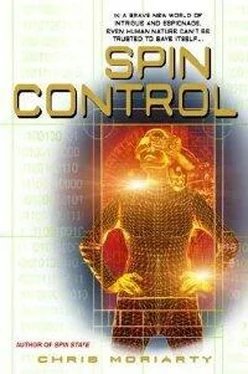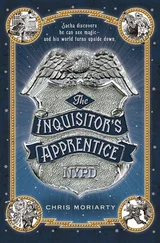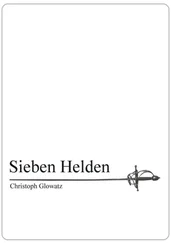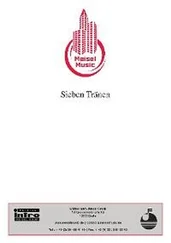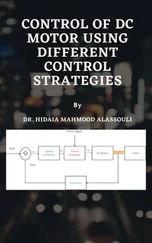Arkady froze. Had Arkasha said something? Was Korchow still playing them off against each other? Would Arkady hurt his pairmate by acknowledging Korchow’s insinuations?
“Tell me,” Korchow asked before Arkady could decide how to answer. “Do you begin to understand what we’re doing here?”
Arkady shook his head. “Here…where?”
“Here on Earth.” Korchow pointed to the carpeted floor, the walls of the room, the city beyond the walls. “Think, Arkady. Use that handsome head of yours for something other than ants.”
But Arkady had thought. He’d lain awake thinking month after month, night after cold night. And he still knew nothing he hadn’t known back on Novalis. So he waited, schooling his face into impassive stillness, not wanting to say or do anything that might jeopardize the sudden and unexpected flow of information.
“What do you know about the colonization of the Americas?” Korchow asked, in an apparent change of subject.
Arkady stuttered something about sociogenesis and intersocietal competition and the perverse incentives of social systems based on sexual reproduction—
“Yes, yes. Forget all the tripe from your tenth-year sociobiology class. We teach you that because it’s good for you, not because it’s true. In any case, when the Europeans first arrived in the Americas—they actually called it the New World, if you can imagine such parochialism—they encountered a civilization as well established in many respects as their own. Mexico City had more residents than the largest cities of Europe, and they were a hell of a lot cleaner and better fed judging from the Conquistadors’ letters home. And even the Aztecs were practically savages compared to the Incas.
“Unfortunately for the Incas, the collision of the Old and the New World turned out not to be a clash of cultures, but a clash of diseases. A plague of plagues swept through the Americas in the wake of the first explorers. Black Death. Syphilis. Influenza. Smallpox. The first explorers discovered a continent of vibrant cities—and by the time the first colonists landed all that was left were graves and charnel houses. It was a classic case of an isolated population encountering a much larger one…and any competent evolutionary ecologist can tell you where that leads.
“At some point during this scourge, the Spanish developed a new and devilishly clever strategy of conquest: gifts. They gave the Incas blankets that had been used by smallpox victims. The blankets were warm and beautiful. They were passed from hand to hand, treasures from another world. And they ended up killing more people than European gunpowder ever did.”
Korchow looked at him expectantly—but whatever lesson he meant Arkady to draw from the tale, Arkady couldn’t make the connection.
“Never mind,” he said after a moment. “You’re a good boy, Arkady. And it’s not lack of intelligence that keeps you from understanding. It’s the same thing that kept you from seeing what was happening on Novalis: idealism. Rostov did a beautiful job when they detanked you. A really fine piece of work. No sense in trying to play country fiddle on a Stradivarius. Do you have any questions about the auction? If you want to ask me anything, now is your moment. It may be difficult to talk this privately again.”
Arkady hesitated, thinking. “There was someone missing,” he said at last. “Someone you told me to look for. Why wasn’t Walid Safik there?”
“I don’t know. The Palestine Security Services are…opaque. It can be very hard to tell what’s going on beneath the surface. People fall in and out of favor unpredictably. But don’t count Safik out. If he’s not invited to the party he’ll find a way to crash it sooner or later.”
“And what about the other party crasher? Turner?”
Korchow’s hand crept to his throat in the same nervous gesture the construct Catherine Li had provoked back at the auction meet. “I didn’t expect the Americans to take an interest. I don’t like it. Still…we may still be able to make use of him.”
“Will he be allowed to interrogate me?” Arkady asked, thinking of the cold eyes behind Turner’s easygoing smile.
“I assume so. But I’ll ask to have it done under GolaniTech supervision. The Americans have a bad habit of changing the rules when they don’t like them.”
“What should I tell him?”
“Whatever he asks you to tell him. I believe in sacrifice, Arkady, but not in pointless sacrifice.”
Korchow fingered the miniature that lay forgotten on the table between them. Arkady glanced at it and shivered.
“You never told the bidders about Bella,” Korchow said.
“You mean about her…” He couldn’t bring himself to say the word, so he settled for a more neutral term, “…illness? But you told me not to tell them.”
“Did I? Well, I suppose I might have at that.” Korchow was smiling at him. “It seemed like a good idea at the time. But when Turner has his little talk with you, why don’t you drop that in his ear and see what happens?”
Arkady blinked at Korchow, comprehension beginning to dawn on him. “This is all about Bella and Ahmed. You want the humans to know about them. Then why all the subterfuge? Why not just tell them?”
“Human nature, Arkady. A beast you must be getting to know rather well by now. Humans aren’t fundamentally selfless. They don’t give themselves, not in the way we do. And they don’t trust any gift”—again that unsettling use of the word—“that’s given too easily.”
Neither did Andrej Korchow. One more way in which the Knowles-Syndicate spy had become as much human as construct. But Arkady suspected that was a thought best kept to himself.
“Then this really is a gift?” he asked. “Not some kind of trap?”
“It’s both. Like everything in life worth having…or giving for that matter. In the short term it may throw Earth into chaos, which will hurt the Ring and therefore help us. Or at least that’s how Knowles sold our plan to the central steering committee. But in the long term it just might give the human race a chance to outrun extinction.”
“And how does that help us? Last time I saw humans anywhere near Gilead they were trying to kill me.”
“Those were UN colonists and genetic constructs, not humans. And even their Ring-side paymasters are as posthuman as you and I are, no matter what their Schengen implants say. The only wild humans left are here on Earth. And as for why we’d want to save them…well, you’re the ecophysicist, not me.”
Arkady knew the theory. It was politically unacceptable, especially in the newer Syndicates like Motai and Aziz. But in scientific circles people talked openly about the problem. The Syndicates were dogged by the question that lurked behind every population-wide genetic engineering project: What were the engineers splicing out of the genome that they wouldn’t know they needed until it was too late?
In a strictly genetic sense, the Syndicates, like any genetically modified posthuman population, were parasites. In order to survive permanently they needed to be embedded within a larger human population that they could draw genetic material from and fall back on if things ever went catastrophically wrong. No posthuman along the Periphery had the genetic diversity to maintain a viable population indefinitely. And though the Ring was huge, its population was so homogenized by commercial splicing that it had a worse diversity deficit than even the Syndicates.
The only piece of “wild” human genome left—and therefore the only safety net if things went wrong—was the rapidly vanishing human population of Earth. The Ring, the Periphery, and even the Syndicates might all be benefiting from Earth’s depopulation in the short term, but in the long term it was disastrous.
Читать дальше
